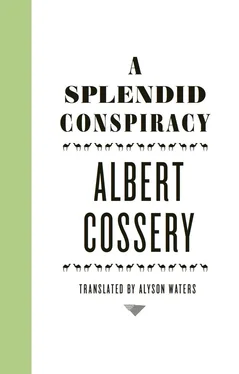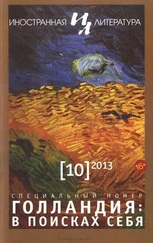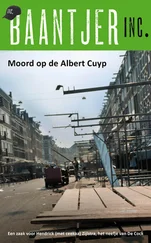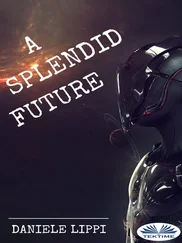Rezk turned around slowly and leaned his elbows on the parapet, then began to look at the river in silence. He had thought a lot about the question preoccupying Medhat and he had reached the conclusion that the police chief, for personal reasons, had decided that this city was concealing a revolutionary organization. Hillali’s insistence on supporting his hypothesis about a plot hatched by these young men to overthrow the government could only stem from some mental decline caused by his thwarted ambition. This cruel and cynical analysis of a man whom he revered shocked Rezk’s sense of honor, but he found himself forced into this ultimate betrayal. He felt obligated to give Medhat an explanation that would clarify his true role in the whole affair and exonerate him from eternal shame. He was convinced that this explanation would meet with Medhat’s approval, since Medhat was by nature prone to admiring the absurd side of all human undertakings.
“I think you are his drug.”
“What do you mean?”
“I’m sure you know that he was assigned to this city only a few years ago. Before, he held an important position in the capital. So the old man is bored. He can’t get used to it here.”
“Don’t tell me he’s inventing conspiracies to amuse himself!”
“No, not exactly. He thinks his job as chief of police in a small city like ours is a disgrace and a travesty. He is a man of superior intelligence who constantly needs to put his intellectual faculties to the test. Ordinary thieves and murderers don’t interest him; in his job, that sort of delinquent can only offer him the sad privilege of investigating the basest instincts of the rabble. He would like to be able to fight more refined criminals, ones motivated not by lucre but by some political ideal: an invisible and crafty enemy advocating disorder and violence worthy of his deliberation. I don’t think his goal is a selfish one, or that he wants to take credit for some spectacular action by quashing a conspiracy in the hopes of earning the government’s gratitude. I know him well enough to be sure that he is very contemptuous of the men in power. His only aim is to dwell in a place inhabited by living souls. In his mind, a city without revolutionaries is a dead city, or simply a city without history.”
“Does he realize how absurd that is?”
“No, not at all. He truly believes there is a conspiracy. It’s even his main preoccupation.”
“How extraordinary! I am enchanted by what you’ve just told me. I suspected something, but I never imagined that. Tell me, does he also think we are responsible for the notables’ disappearance?”
“Of course. These disappearances have convinced him that the movement has grown and is beginning to act. He’s reading loads of books about revolutionary strategies.”
“Well, good for him. He should continue to do so; I don’t see any problem in that. To each his own amusement. Tolerance is my first rule of conduct.”
Although he was well aware of the prevailing stupidity, Medhat, despite his feigned indifference, was somewhat surprised by all this. The unbelievably ridiculous ideas of this man in a position of great responsibility proved, if proof were still necessary, the frailty of a system collapsing beneath the weight of its iniquities. This Hillali, who had accepted the sham, worked for it, and built his career on deceitful foundations and ethics, was now trapped in his old age, inventing another form of sham to extend his flagging authority. For him and his ilk — thoroughgoing cheats all — the moment of retirement also meant the terrible failure of their dreams. This is how dogs that have been abandoned by their masters die, having hunted in vain for a bone to gnaw on in the trashcans of strangers. Medhat, too, leaned on the parapet and looked at the river. In the distance, a sailboat was fighting against the current, its quivering sail leaning dangerously toward the hazy line of the horizon. Above some carrion on one of the banks, kite birds were circling — immutable raptors of the sky, more serene and more majestic than their competitors, men of the earth. The inordinate grayness of this landscape was so oppressive that Medhat sympathized with Hillali’s distress; Hillali — who had been thrown back by his own kind into this decadent city and excluded from the splendors that would have been lavished upon him had he collaborated with the authorities — had nothing but the mirage of a conspiracy to fill his loneliness.
Through some subtle line of thought, Hillali’s paranoid delusions led Medhat to recall Samaraï’s disappearance, which he had completely forgotten. The idea that he had to fulfill his promise to Salma displeased him, and he thought it would be clever to take advantage of his new friendship with Rezk to find out more about this business, sparing him pointless effort. For his job, Rezk moved about a lot, and if the veterinary student were still in the city, perhaps he would have seen him during one of his harmless attempts at spying for the chief of police.
“By the way,” said Medhat, “one of my friends has disappeared. I wonder if by any chance you haven’t seen him.”
“Which one?”
“The veterinary student. The one who came from the capital to claim his inheritance. You must have seen him, he accompanied me everywhere. His name is Samaraï.”
“Yes, I know him. When did he disappear?”
“About four days ago. The person with whom he’s been living is worried about him. I’d like to be able to reassure her.”
“If I’m not mistaken, he was just passing through here. Perhaps he went back home? It seems logical to me.”
“Unfortunately not. He didn’t take any of his clothes. His suitcase is still here, and so are his medical books, which were very important to him and which he would never have abandoned if he had left for good.”
“That’s really strange.”
“I think so, too. So, try to remember. Did you see him recently?”
Rezk’s nighttime meeting with the veterinary student was too recent for him to pretend to be searching his memory. For anyone else, it would have been a chance, ordinary encounter and he should have mentioned it to Medhat without thinking; yet he remained paralyzed, as if gripped by some superstitious fear. It had been exactly four days since that unbelievable scene of their separation in front of the brothel door. The last image Rezk had of Samaraï rushing headlong like a doomed man at the blood-red door was still present in his mind. And the distress he had felt at the time gripped him once again, as if his premonition of a calamity had come true. But what calamity could befall a man in this brothel, a place meant for pleasure? Perhaps he was still there, lost in debauchery and oblivious to the outside world. Hadn’t he proclaimed his intention of paying every woman in the place? Such ambitious sexual plans could occupy someone for several days, perhaps an entire month. There was nothing frightening about that; it seemed more likely that he had simply gone into hiding for a time.
“I saw him in fact just four days ago.”
“Where?”
“On the street. At night. He stopped me to ask for directions. He was very drunk and his words defied common sense. I had the feeling he was terribly lovesick and was trying to forget his pain by doing something reckless.”
“Where’d he want to go?”
“He was looking for Wataniya’s brothel.”
“Do you think he went there?”
“It was hard for me to explain how to go, especially since he was incapable of getting there by himself, so I accompanied him to the door. He invited me to come in with him, but I refused. He had a lot of money on him, and he showed it to me ostentatiously. It must have been his entire inheritance.”
“And you haven’t seen him again since that night?”
Читать дальше












